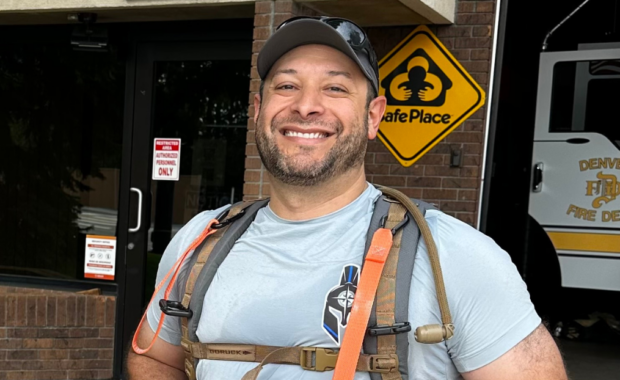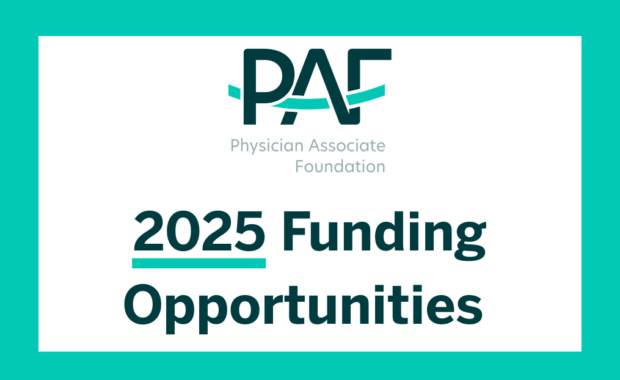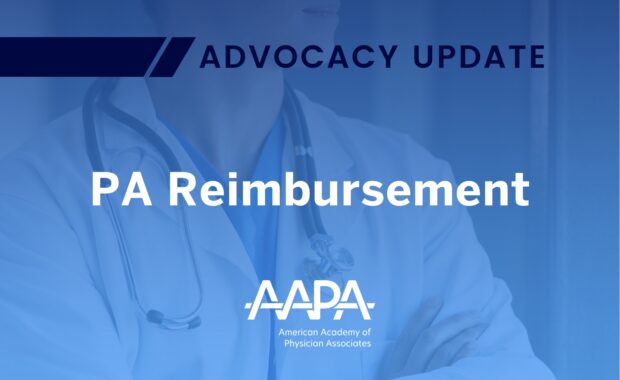Not on the Front Lines? Ways You Can Help With COVID-19 Response
Check with State Departments of Health for Opportunities
April 8, 2020
We’re hearing from many PAs who want to offer their skills and abilities during the COVID-19 crisis but aren’t sure exactly how to help. We’ve compiled the opportunities we’ve heard about for you – whether new employment or volunteering. Those volunteering should be aware they are not typically covered by malpractice insurance. Find more information here on PA life insurance, short and long-term disability insurance, health insurance, and malpractice insurance.
PRACTICING PAs
Before seeking employment, consider that regulations governing PA employment vary by state. AAPA has been working with state chapters to eliminate barriers like supervision and licensing requirements. During this public health emergency, states may have fewer restrictions on PA practice.
Supervision requirements
AAPA is calling on governors in all states to waive physician supervision or collaboration requirements for PAs during a declared public health emergency or disaster through executive orders. For an up-to-date list of which states have removed supervision or collaboration requirements for PAs, please see this interactive map.
Licensing requirements
PAs holding an active license in one state can practice temporarily in another state in order to help during the pandemic, depending on the state. The Association of American Medical Colleges shares this list of states that have waived licensing requirements. Links to other state requirements have been shared recently on Huddle.
Telehealth
Many PAs have asked about opportunities in virtual medicine and telehealth. The Medicare program reimburses PAs for providing all covered telehealth services in the same manner as physicians. In response to the COVID-19 pandemic, the Centers for Medicare and Medicaid Services temporarily expanded telehealth and telemedicine services to enable beneficiaries to receive a wider range of healthcare services without having to travel to an office, clinic, or health care facility. PAs are fully included in the telehealth and telemedicine expansion program. PAs can find out more information about telehealth, telemedicine, and reimbursement at AAPA’s Reimbursement website. They may also be interested in joining AAPA’s special interest group, PAs in Virtual Medicine and Telemedicine (PAVMT).
LICENSED BUT NOT CURRENTLY PRACTICING PAs
PAs with an active license but not currently practicing can contact their state department of health for opportunities to be of assistance. PAs may also contact departments of health in states where the governor has authorized healthcare providers with active licenses in other states to provide healthcare services.
RETIRED PAS
For retired PAs, PA licensure needs to be up to date in order to practice. NCCPA has the most recent information on testing. Some states are requesting that healthcare professionals come out of retirement during this crisis, and those states’ departments of health usually have a registry for volunteers and will contact those who sign up. Read about a PA in Oregon who came out of retirement in the New York Times article.
Job postings
The United States Department of Veterans Affairs has made this job posting, seeking to hire PAs on a temporary basis at 157+ locations across the country.
You may also look for job openings on the PA JobSource.
Temporary assistance
PAs can join a Federal Emergency Management Agency (FEMA)-sponsored Community Emergency Response Team (CERT). Another option, according to AAPA’s special interest group Disaster Medicine Association of PAs, is to get on a State Medical Assistant Team (SMAT). A greater level of involvement entails joining a Disaster Medical Assistance Team (DMAT). DMATs are part of the National Disaster Medical System (NDMS), which include trauma, medical, critical care teams, and a national mortuary and veterinary response team.
PA STUDENTS
For recent graduates, NCCPA announced there are select testing centers open for “essential medical service providers.” Here is a list of states offering temporary licenses prior to certification. ARC-PA sent a recent update about PA students volunteering to help during COVID-19. Whether PA students are doing volunteer or paid work, they need to be aware of what is covered by their PA program’s insurance.
In addition, here are ways students have said they are helping respond to COVID-19:
- Volunteering at testing sites.
- Matching students with medical providers to do errands, babysit their children, do grocery shopping or housework.
- Rounding up donations of PPE/masks from places like dental offices, salons, construction sites, or veterinary offices.
- Distributing medical grade material to anyone willing to make masks.
- Organizing mobile pantries through local foodbanks.
- Rebooking non-urgent patients because they are HIPPA trained to help MAs/receptionists.
Other helpful resources
The Centers for Medicare and Medicaid have a variety of FAQs and fact sheets relating to COVID-19.
Finally, for all employees and volunteers, take care of yourself so you can take care of others.
You May Also Like
AAPA COVID-19 Resource Center
For These Three PAs, Volunteering Leads to Meaningful Impacts
How PAs Can Use Their Skills in Disaster Medicine
Thank you for reading AAPA’s News Central
You have 2 articles left this month. Create a free account to read more stories, or become a member for more access to exclusive benefits! Already have an account? Log in.


